Addictive substances have a way of taking over someone’s life. Chronic or repeated use of drugs or alcohol can create short-term and long-term negative effects on the body and mind. These substances can damage the organs and alter the brain, leading to mental health disorders, organ damage or failure, and other health complications. It’s not just the addicted individual who suffers either. Friends and family members all experience the consequences of drug or alcohol addiction. As with many problems, knowledge and information can make it easier to identify and confront the issues surrounding addiction. To help you learn more, here is our overview of the psychological and physical effects of addiction.
Psychological Effects of Addiction
Addiction often works in a cycle. The addictive substance creates a pleasant effect or provides relief for an unpleasant feeling, such as discomfort or anxiety. As a result, the mind starts craving the addictive substance. Meanwhile, the body might start to build a tolerance to the drugs or alcohol until you require a larger dose to feel the same pleasurable effects. All of this can add up to an individual feeling like they need drugs or alcohol to function in their everyday life. Because of this, addiction and other mental health disorders often go hand in hand. Individuals who suffer from addiction are more likely to develop mood or anxiety disorders. At the same time, mental health issues often cause individuals to seek unhealthy coping mechanisms such as drugs or alcohol.
Depression
One of the most common psychological effects of addiction is depression. Once again, it’s often unclear whether depression stems from addiction or vice versa. Many individuals use alcohol or drugs to self-medicate symptoms of depression. However, the pleasurable effects of these substances don’t last forever and can worsen these symptoms when the individual is sober. Drug and alcohol use also often leads to withdrawal symptoms that can make depression worse. Depression and addiction feed into each other, making their respective symptoms worse. This makes it even harder for victims to identify the issue and work toward recovery.
Anxiety
Anxiety and other panic disorders also intertwine with drug and alcohol addiction. In some cases, individuals begin to rely on drugs or alcohol as a way to relax. Like depression, anxiety can cause a cycle of abuse and dependency. Alternatively, an individual might form an addiction to a stimulant, such as cocaine, that causes anxiety as a side effect. Anxiety can also occur as a withdrawal symptom for many substances, making recovery even more difficult.
Paranoia
There are some substances, like marijuana or cocaine, that can cause feelings of paranoia when you use them. These side effects often worsen over time with continued use. Additionally, because paranoia isn’t as common as depression or anxiety, individuals may feel the need to hide these symptoms. Many addictive substances are illegal, which also adds to the feelings of fear or secrecy. As individuals dread someone catching them or getting in trouble because of their substance abuse, the feelings of paranoia increase, worsening the entire situation.
Other Psychological Effects
There are many other psychological symptoms of addiction that can stem from a number of different mental health issues. Individuals who suffer from drug or alcohol addiction can experience heightened aggression, memory issues or periods of confusion, hallucinations, or dramatic mood swings. Additionally, substance abuse and addiction can result in a decreased sense of self-preservation. This can also stem from mood disorders such as depression. These feelings might lead to partaking in more dangerous habits on top of substance use. While all these behaviors are symptoms of various issues, they present major complications by themselves and can make it even harder for victims to seek help and recovery.
Physical Effects of Addiction
While many of the primary effects of addiction occur in the brain, the rest of the body can suffer as well. Substance abuse weakens the immune system and leaves the body more vulnerable to various diseases and infections. Drug use—especially through needles—increases an individual’s chance of contracting HIV, hepatitis, or other infectious diseases. Other physical effects of addiction include abdominal pain, digestive issues, trouble sleeping, or even seizures and other forms of brain damage. Addictive substances can impact every part of the body even beyond the following common issues.
Kidney Damage
Drugs can harm the kidneys both directly and indirectly. Many symptoms of drug use—such as dehydration, muscle breakdown, and increased body temperature—can contribute to kidney damage. This damage worsens as these symptoms persist over time. Unfortunately, it is relatively common for long-term drug users to experience kidney failure or other forms of kidney damage. The same is true for individuals who regularly consume a large amount of alcohol. Heavy drinking increases an individual’s risk of chronic kidney disease.
Liver Failure
Liver damage is a well-known consequence of heavy drinking. However, both alcohol and drug addiction can lead to serious complications and even liver failure. The liver is responsible for clearing toxins from the bloodstream. When an individual partakes in the use of drugs or alcohol on a regular basis, they force their liver to work overtime. This eventually causes severe liver damage in the form of chronic inflammation, scarring, tissue damage, or cancer. Because the liver is a vital part of routine body functions, this liver damage can cause several other health problems over time.
Heart Problems
Most drugs and alcohol present a threat to your cardiovascular health. Heart problems stemming from substance addiction range from an increased heart rate or abnormal blood pressure to a heart attack. Drugs and alcohol serve to weaken your heart over time, increasing your risk levels even more with long-term use. Additionally, drug users who utilize injections face an increased risk of collapsed veins or bacterial infections in the bloodstream.
Just as the psychological and physical effects of addiction reach every bodily function, the consequences of addiction stretch far beyond the user. Individuals who suffer from alcoholism or drug addiction are also likely to face problems with their finances, careers, relationship, or even criminal records. At Serenity Group, we know that addiction isn’t easy for anyone. If your addiction results in a DUI charge and SR22 insurance requirement, we’re here to help. We’ll find the best SR22 insurance quotes in California, Colorado, or wherever your charge exists. Let us take care of your insurance so you can focus on getting back on the road and on your way to recovery.
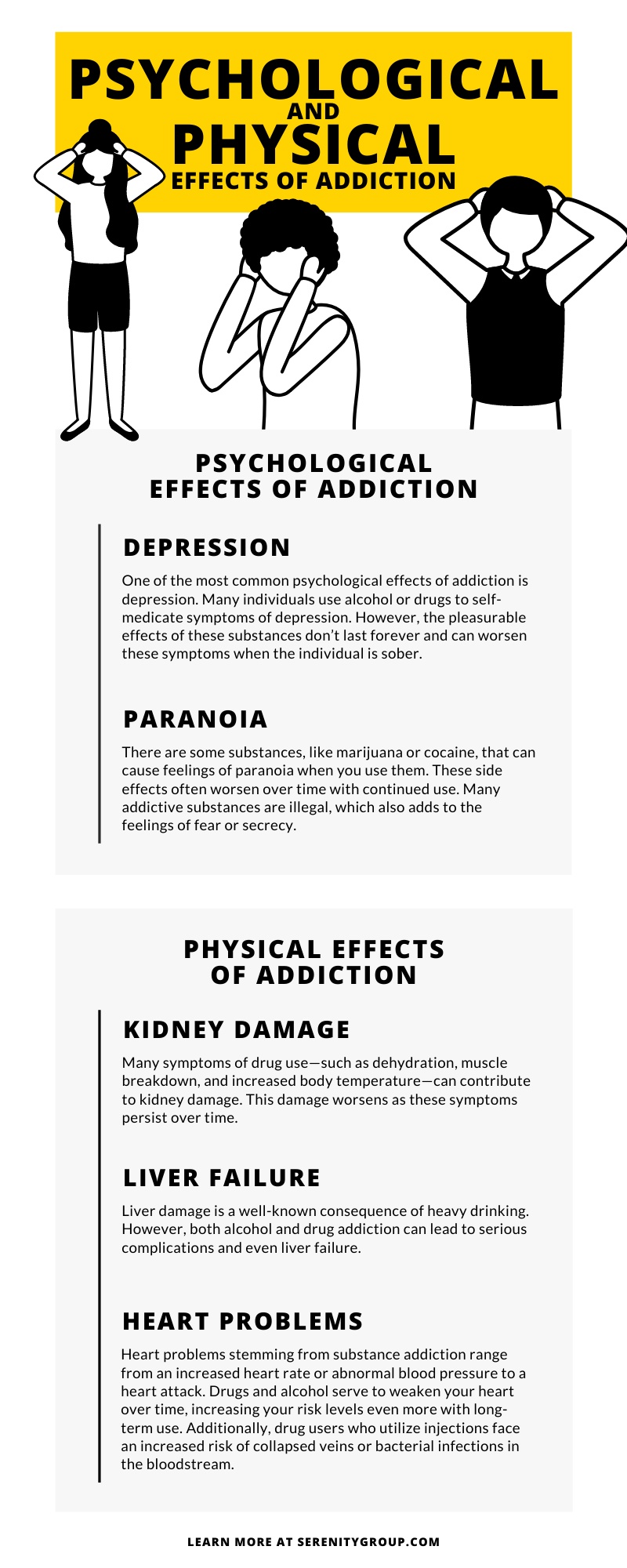

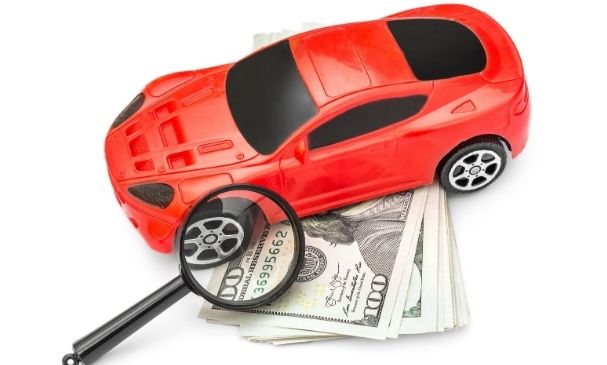
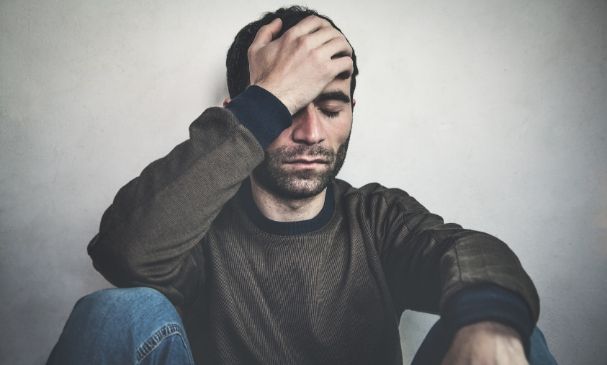
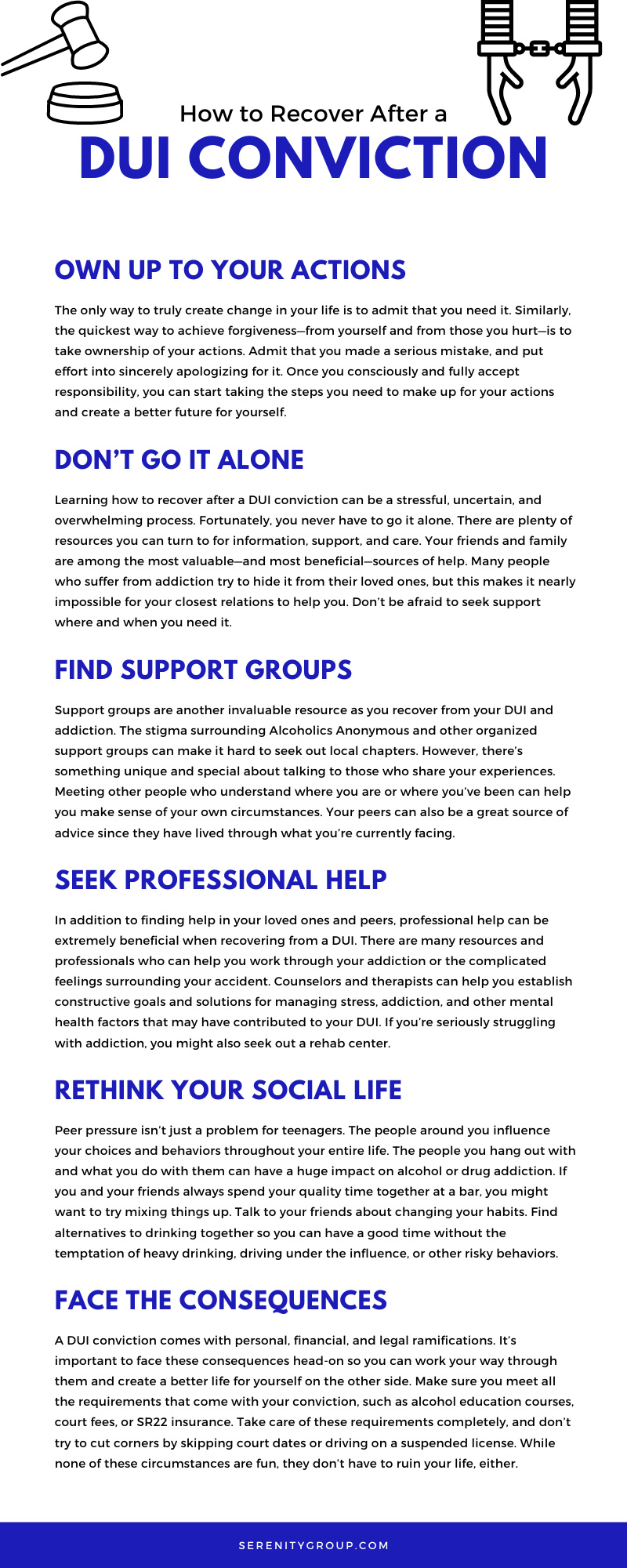

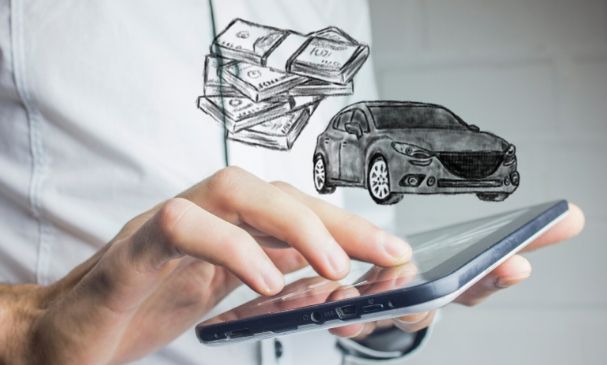
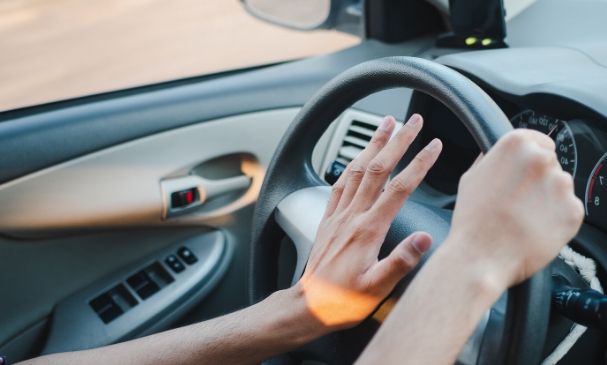


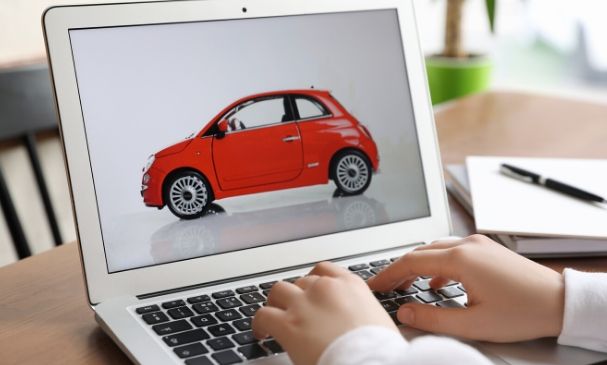
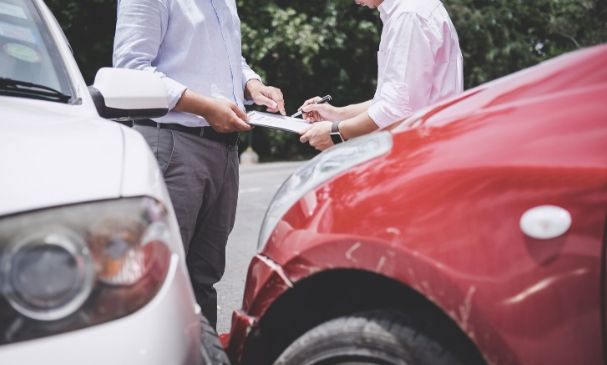
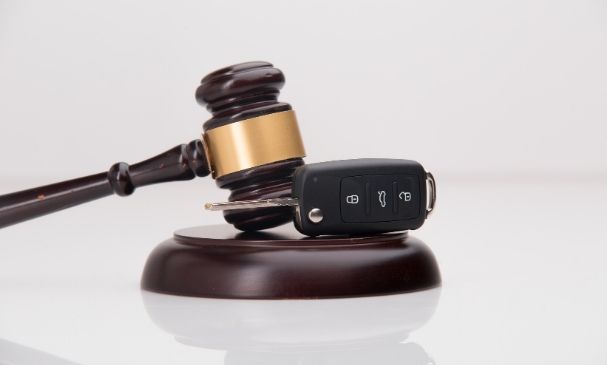

Recent Comments